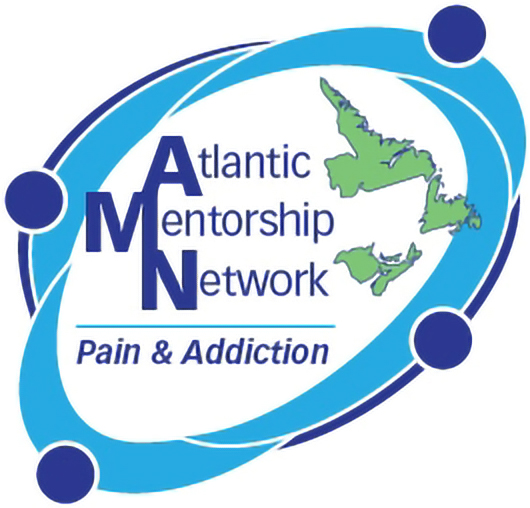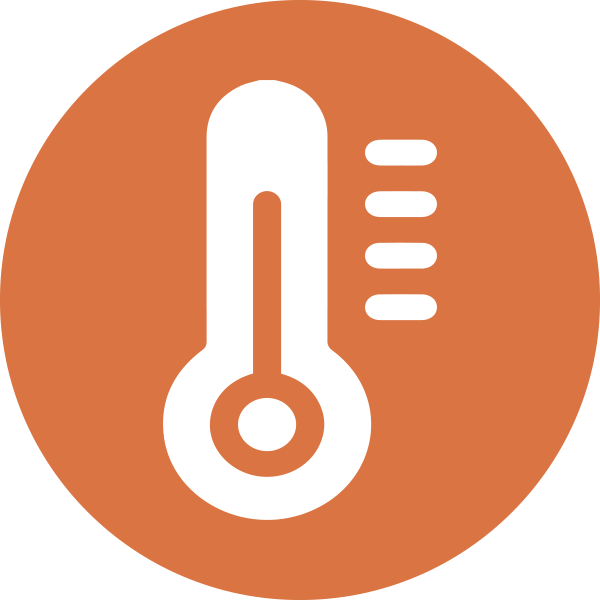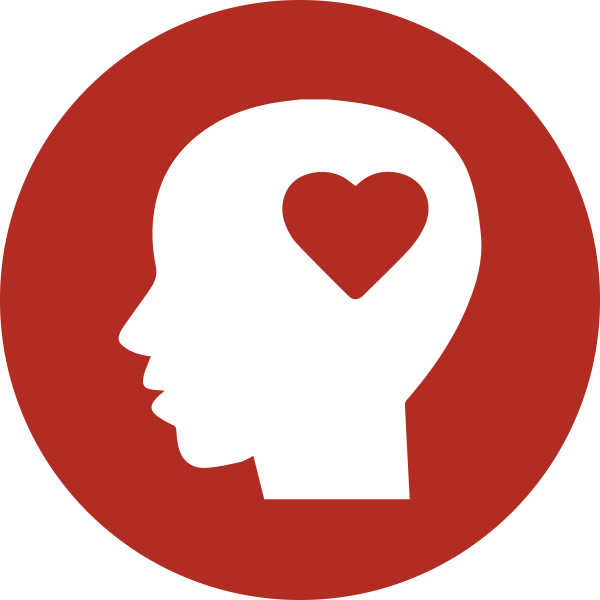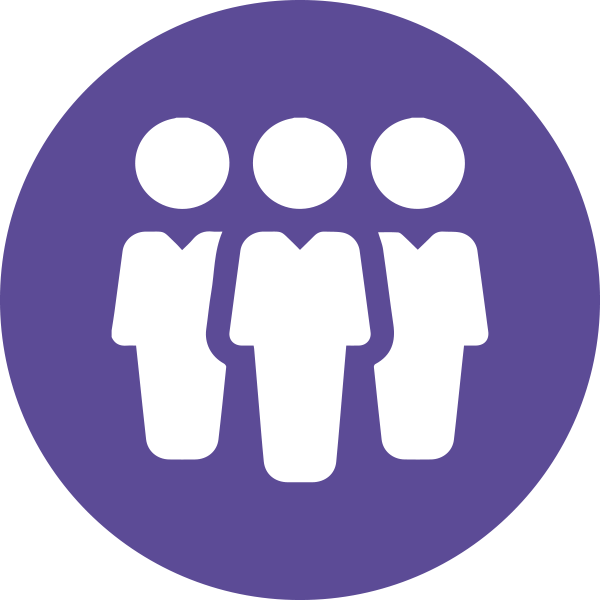Competencies
Foundational
1 Understand pain and the patient’s experience
Learning Objectives
- Explain the fundamental neuroscience of pain and addiction, and the interrelationship of its dimensions
Recommended Resources
- Chronic Pain: Can Our Brains Fix It? (Audio podcast)
People with chronic pain often struggle with it for years while doctors scour their bodies for the cause. Could an answer — and the solution — be in our brains? - The mysterious science of pain (TED)
Explores the biological and psychological factors that influence how we experience pain and how our nervous system reacts to harmful stimuli. - Chronic Pain Explained (Video)
An explanation of chronic pain and how it is experienced in both the mind and body. - Pain and the brain (YouTube channel Video)
The presenter talks about her experience of how some people feel trapped by their pain and tries to break down some myths around pain and aid people in recovery.
2 Enhanced capacity to incorporate a broad bio-psycho-social understanding with respect to the experience, evaluation of the management of pain
Learning Objectives
- Explain the fundamental neuroscience of pain and addiction, and the interrelationship of its dimensions
Recommended Resources
- Chronic Pain: Can Our Brains Fix It? (Audio podcast)
People with chronic pain often struggle with it for years while doctors scour their bodies for the cause. Could an answer — and the solution — be in our brains? - The mysterious science of pain (TED)
Explores the biological and psychological factors that influence how we experience pain and how our nervous system reacts to harmful stimuli. - Chronic Pain Explained (Video)
An explanation of chronic pain and how it is experienced in both the mind and body. - Pain and the brain (YouTube channel Video)
The presenter talks about her experience of how some people feel trapped by their pain and tries to break down some myths around pain and aid people in recovery.
3 View pain and addiction in a patient-centered, non-stigmatizing way
Learning Objectives
- Discuss historical developments of pain and addiction theory and practice
- Know the myriad clinical presentations
Recommended Resources
- Multidimensional Aspect of Pain (e-module)
A review of the many dimensions of the patient’s pain experience. - Fleming KC, Volcheck MM. Central Sensitization Syndrome and the Initial Evaluation of a Patient with
Fibromyalgia: A Review (Article)
Consideration of central sensitization and symptom neurophysiology in patients with fibromyalgia and medically unexplained symptoms - Words Matter Terms to Use and Avoid When Talking About Addiction (Document)
Tips for providers to keep in mind while using person-first language and terms to avoid reducing stigma and negative bias when discussing addiction. - Volkow, N.D., Gordon, J.A., & Koob, G.F. (2021). Choosing appropriate language to reduce the stigma around mental illness and substance use disorders. (Article)
Carefully considered language is the most immediate way to effect change about stigmatized conditions. - Beyond Stigma (Video)
Explores the impact of stigma on all aspects of treatment for people living with opioid use disorder. - Pace, C.A., & Samet, J.H. (2016). Substance Use Disorders (Document)
A clinical overview of substance use disorders, focusing on epidemiology, prevention, diagnosis, complications, and management.
4 Communicate effectively with patients, families, and other health care providers
Learning Objectives
- Understand the terminology of pain, addiction, and associated conditions
- Understand the impact of the terms patient and client
Recommended Resources
- Chronic Pain Classification for ICD-11 (YouTube channel Video)
Classification of chronic pain in the International Classification of Diseases.
5 Influence organizational culture shift within and outside health care settings
Learning Objectives
- Recognize the impact of pain and addiction on society and society’s impact on pain and addiction
- Discuss the role of harm reduction in supporting individuals living with addiction and or chronic pain
- Describe the importance of compassionate care
- Integrate relevant cultural safety in health care planning
- Understand stigma
Recommended Resources
- Everything you think you know about addiction is wrong (TED)
What causes addiction, and how can we overcome it? - The Power of Addiction and the Addiction of Power (TED)
From drugs to power. From lack of love to the desire to escape oneself—nothing escapes. - Open Mind Event: Unbroken Brain with Maia Szalavitz (YouTube Video)
Using her own story of recovery from heroin and cocaine addiction, the author explores how reframing addiction as a developmental disorder could revolutionize the prevention, treatment, and policy. - Overcoming Stigma Through Language: A Primer (Document)
A guide to facilitating conversations and increasing awareness of the stigma surrounding people who use substances, their support networks and service providers in the community. - National Harm Reduction Coalition (Website)
Evidence-based strategies with and for people who use drugs. - Addiction (YouTube channel Video)
Addiction in a nutshell. - Neuroscience-Addiction and the Brain (YouTube channel Video)
An explanation of the three stages of addiction and the key neural structures that are impacted by chronic drug use. - Sinclair et al., 2016 Compassion: A scoping review of the healthcare literature (Article)
This review looks at the literature on compassion in clinical health care. - Sinclair et al., 2020 Healthcare providers perspectives on compassion training: a grounded theory study (Article)
This study addresses the question: “What are healthcare providers’ perspectives on training current and future healthcare providers in compassion?” - Sinclair et al., 2021 What works for whom in compassion training programs offered to practicing healthcare providers: a realist review This review identifies the attributes that explain the successes and or failures of compassion training programs provided to practicing healthcare providers.
- Self-Compassion (Website)
This website offers several tools and resources to support compassionate care. - Self-Compassion Scale Short Form (Document)
This tool can be used to self-identify and validate self-compassion. - Compassion in Healthcare (Video presentation)
Outlines the importance of compassionate care and identifies tools to support compassionate care.
6 Demonstrate compassion (to live in a just society)
Learning Objectives
- Recognize the impact of pain and addiction on society and society’s impact on pain and addiction
- Discuss the role of harm reduction in supporting individuals living with addiction and or chronic pain
- Describe the importance of compassionate care
- Integrate relevant cultural safety in health care planning
- Understand stigma
Recommended Resources
- Everything you think you know about addiction is wrong (TED)
What causes addiction, and how can we overcome it? - The Power of Addiction and the Addiction of Power (TED)
From drugs to power. From lack of love to the desire to escape oneself—nothing escapes. - Open Mind Event: Unbroken Brain with Maia Szalavitz (YouTube Video)
Using her own story of recovery from heroin and cocaine addiction, the author explores how reframing addiction as a developmental disorder could revolutionize the prevention, treatment, and policy. - Overcoming Stigma Through Language: A Primer (Document)
A guide to facilitating conversations and increasing awareness of the stigma surrounding people who use substances, their support networks and service providers in the community. - National Harm Reduction Coalition (Website)
Evidence-based strategies with and for people who use drugs. - Addiction (YouTube channel Video)
Addiction in a nutshell. - Neuroscience-Addiction and the Brain (YouTube channel Video)
An explanation of the three stages of addiction and the key neural structures that are impacted by chronic drug use. - Sinclair et al., 2016 Compassion: A scoping review of the healthcare literature (Article)
This review looks at the literature on compassion in clinical health care. - Sinclair et al., 2020 Healthcare providers perspectives on compassion training: a grounded theory study (Article)
This study addresses the question: “What are healthcare providers’ perspectives on training current and future healthcare providers in compassion?” - Sinclair et al., 2021 What works for whom in compassion training programs offered to practicing healthcare providers: a realist review This review identifies the attributes that explain the successes and or failures of compassion training programs provided to practicing healthcare providers.
- Self-Compassion (Website)
This website offers several tools and resources to support compassionate care. - Self-Compassion Scale Short Form (Document)
This tool can be used to self-identify and validate self-compassion. - Compassion in Healthcare (Video presentation)
Outlines the importance of compassionate care and identifies tools to support compassionate care.
7 Empower patients and communities to bring about social change
Learning Objectives
- Recognize the impact of pain and addiction on society and society’s impact on pain and addiction
- Discuss the role of harm reduction in supporting individuals living with addiction and or chronic pain
- Describe the importance of compassionate care
- Integrate relevant cultural safety in health care planning
- Understand stigma
Recommended Resources
- Everything you think you know about addiction is wrong (TED)
What causes addiction, and how can we overcome it? - The Power of Addiction and the Addiction of Power (TED)
From drugs to power. From lack of love to the desire to escape oneself—nothing escapes. - Open Mind Event: Unbroken Brain with Maia Szalavitz (YouTube Video)
Using her own story of recovery from heroin and cocaine addiction, the author explores how reframing addiction as a developmental disorder could revolutionize the prevention, treatment, and policy. - Overcoming Stigma Through Language: A Primer (Document)
A guide to facilitating conversations and increasing awareness of the stigma surrounding people who use substances, their support networks and service providers in the community. - National Harm Reduction Coalition (Website)
Evidence-based strategies with and for people who use drugs. - Addiction (YouTube channel Video)
Addiction in a nutshell. - Neuroscience-Addiction and the Brain (YouTube channel Video)
An explanation of the three stages of addiction and the key neural structures that are impacted by chronic drug use. - Sinclair et al., 2016 Compassion: A scoping review of the healthcare literature (Article)
This review looks at the literature on compassion in clinical health care. - Sinclair et al., 2020 Healthcare providers perspectives on compassion training: a grounded theory study (Article)
This study addresses the question: “What are healthcare providers’ perspectives on training current and future healthcare providers in compassion?” - Sinclair et al., 2021 What works for whom in compassion training programs offered to practicing healthcare providers: a realist review This review identifies the attributes that explain the successes and or failures of compassion training programs provided to practicing healthcare providers.
- Self-Compassion (Website)
This website offers several tools and resources to support compassionate care. - Self-Compassion Scale Short Form (Document)
This tool can be used to self-identify and validate self-compassion. - Compassion in Healthcare (Video presentation)
Outlines the importance of compassionate care and identifies tools to support compassionate care.
Advanced
1 Incorporate principles of health equity and cultural context in the understanding of pain/addiction
Learning Objectives
- Describe basic principles of wellness in indigenous culture
- Navigate language, cognitive and communication barriers
Recommended Resources
- Allan, B., & Smylie, J. (2015). First Peoples, Second Class Treatment: The role of racism in the health and well-being of Indigenous peoples in Canada (Document)
This document explores the role of racism in the health and well-being of Indigenous people in Canada by providing an overview of the contexts of racism; Indigenous responses to racism; health service-level responses; efforts to train health professionals; and policies & recommendations.
2 Develop awareness of cutting-edge, innovative interventions
Learning Objectives
- Explore the neurobiological and immune system interactions toward the development of chronic pain
- Evaluate current research practice in pain and addiction management
Recommended Resources
- Expert Task Force on Substance Use (Website)
A summary of the national task force created using a public health lens to address substance use, including decriminalization. - An Anatomy of Pain: How the Body and the Mind Experience and Endure Physical Suffering (Audio interview)
The science behind pain and the complexities of its treatment.
3 Become a healthcare leader and teacher
Learning Objectives
- Explore the neurobiological and immune system interactions toward the development of chronic pain
- Evaluate current research practice in pain and addiction management
Recommended Resources
- Expert Task Force on Substance Use (Website)
A summary of the national task force created using a public health lens to address substance use, including decriminalization. - An Anatomy of Pain: How the Body and the Mind Experience and Endure Physical Suffering (Audio interview)
The science behind pain and the complexities of its treatment.
4 Improve clinical care and provide learning opportunities for patients to support self-management
Learning Objectives
- Explore the neurobiological and immune system interactions toward the development of chronic pain
- Evaluate current research practice in pain and addiction management
Recommended Resources
- Expert Task Force on Substance Use (Website)
A summary of the national task force created using a public health lens to address substance use, including decriminalization. - An Anatomy of Pain: How the Body and the Mind Experience and Endure Physical Suffering (Audio interview)
The science behind pain and the complexities of its treatment.
5 Understand the sociology of chronic pain and addiction
Learning Objectives
- Explain how cultural, institutional, societal, and regulatory influences affect the assessment and management of pain and addiction
- Discuss contemporary thinking and innovation that can have an impact on the management of pain and addiction
Recommended Resources
- Chronic Pain in Canada: Laying a Foundation for Action (Document)
The current state of pain care, education, training, awareness for individuals and health care professionals, and research in Canada. - Working Together to Better Understand, Prevent, and Manage Chronic Pain: What we heard (pp. 10-13) (Document)
This portion of the report aims to look at societal inequity and the COVID-19 pandemic and the management of chronic pain. - Working Together to Better Understand, Prevent, and Manage Chronic Pain: What we heard (pp. 16-17) (Document)
In this section of the report, you will gain insight into the management of chronic pain in the context of mental health and substance use disorders.






